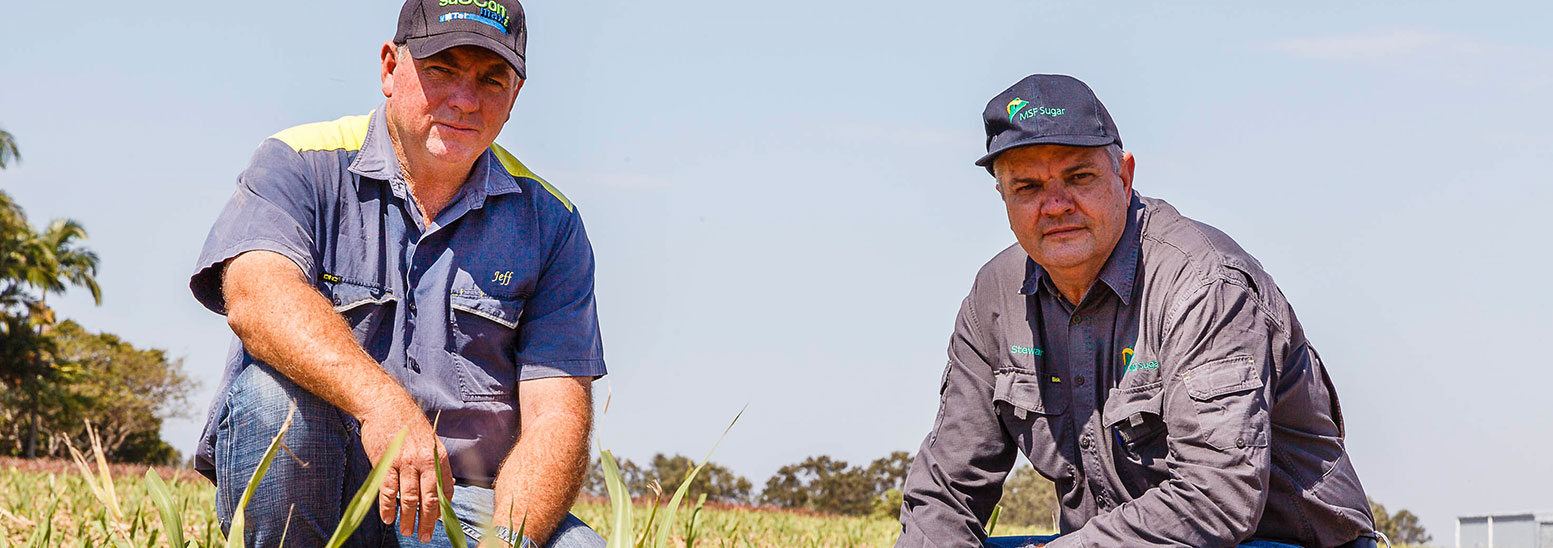
MEDIA RELEASE
10 May 2017
LAND BANKING INVESTMENT LINKED TO RESTRICTIVE NEW VEGETATION LAWS
With a bumper crop on the horizon for 2018, combined with MSF Sugar’s long term plans to expand Maryborough Mill the sugarcane industry remains an important driver of employment in the Fraser Coast region.
The industry currently provides jobs for more than 600 families and injects at least $63 million annually back into the local economy.
However, thanks to land banking behaviour that has recently emerged, future growth of the industry is potentially under threat following the introduction of Queensland’s vegetation management laws.
The issue of land banking for high value agricultural land has played out in regional media this week through coverage of the amalgamation and sale of 623 ha of farmland in Maryborough which, according to the realtor behind the sale, is flagged for transition from sugarcane to macadamia nuts.
However, as the current leaseholder of this farmland, MSF Sugar will continue to grow sugarcane on the 623 ha for at least another 10 years which means that if the transition to macadamia nuts does go ahead, it will not commence until 2028 at the earliest.
There is therefore growing speculation that the sale heralds a shift towards land banking behaviour in the agricultural sector as producers of crops such as macadamia’s and avocados seek to gain access to high value agricultural land. This in turn could lead to a move away from sugarcane crops on the Fraser Coast.
While MSF Sugar had the opportunity to purchase the 623 ha outright and retain it under cane, this option wasn’t secured as the company has instead chosen to focus on continuing advancements in efficient farming practices to maximise production on farms the company already owns.
According to General Manager Maryborough, Stewart Norton, “As an industry we are entering one of our best growing seasons with the region on track for a record crop this year. Favourable weather conditions, efficient irrigation systems and industry leading farming practices have all contributed to crop expansion across the Fraser Coast.
“Over the past 12 months, we have seen an additional 300 ha go under cane across the region and the industry as a whole now has 12,500 ha under cane. This increases to 15,000 ha when you factor in cane land that’s currently under fallow.
“While 5 per cent of current crop levels in Maryborough may shift to macadamia nut production in 10 years’ time, by the time we reach 2028 we expect to have seen significant growth in sugarcane production that will balance this out. The industry is far from being in decline.”
Jeff Atkinson, who grows 220ha of cane at St Helen’s, northeast of Maryborough and is Chairman of Maryborough CANEGROWERS, believes the purchase of land by a new investor is positive for the region and will lead to increased confidence in agriculture. However, he shares MSF Sugar’s concerns that land banking behaviour may ultimately harm future growth opportunities for sugarcane.
“As an industry we welcome ongoing investment in agricultural production and the type of land banking that’s taken place with this sale brings a sense of optimism into the region.
“I’m not concerned about the new owner’s plans to move toward macadamia’s as we obviously have to compete with other crops for land.
“However, what I do see as being an issue is that the expansion of agricultural crops – including sugarcane and macadamia crops – has now been impeded by Queensland’s new vegetation laws. I expect this is a reason behind the producer securing such a large parcel of land knowing he can’t use it for another 10 years.
“Without these new vegetation laws, we could easily work together to grow agriculture in the region as sugarcane could expand onto land that’s not suitable for macadamia’s, but land clearing restrictions are an issue as our farms are now fair game for alternate crop investors.
“My biggest concern for the future is our vegetation laws, not competing crops. That and our ability to secure water infrastructure that will support the high water needs of these alternate crops entering the region.”
Mr. Norton agrees that land banking activities are a greater cause for concern than competing crops as if land banking does limit planned expansions for sugarcane, combined with lower job rates and higher water usage costs this will have an impact on the region’s economy.
ENDS
Pictured Above: Chairman of Maryborough CANEGROWERS Jeff Atkinson (left) and MSF Sugar’s General Manager Maryborough Stewart Norton (right) share concerns about land banking in the region, which may be linked to new restrictive vegetation laws in Queensland.
For more information please contact:
Wendy Hughes
MSF Sugar Corporate Affairs and Communications Manager
Mob: 0417 043 954
